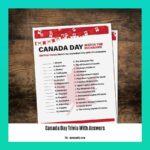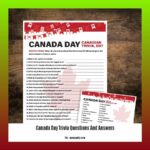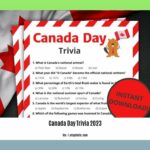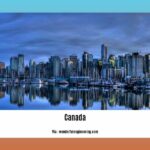Witness the Magic of the Northern Lights in Banff
Ever dreamt of seeing the Northern Lights dance across the night sky? Well, Banff National Park in Canada might just be the perfect place to make that dream a reality. Imagine this: You’re bundled up in warm clothes, gazing up at a sky full of stars, and suddenly, streaks of green, purple, and pink light begin to shimmer and swirl. That’s the magic of the aurora borealis, and Banff offers a front-row seat to this incredible natural phenomenon.
Why Banff? Unveiling the Science Behind the Spectacle
You might be wondering, “Why Banff?” Well, Banff’s location and conditions create the perfect recipe for an unforgettable aurora experience. Picture this: the aurora borealis occurs when tiny, electrically charged particles from the sun collide with gases in Earth’s atmosphere. Banff, situated at a high latitude, sits closer to the Earth’s magnetic poles. This proximity to the poles increases the likelihood of these celestial displays gracing the night sky. Add to that Banff National Park’s famously pristine dark skies, far from city lights, and you’ve got an ideal backdrop for aurora viewing.
Timing is Everything: When to Catch the Show
If you’re serious about catching the aurora, timing is key. Plan your trip around the winter months, from October to mid-April. During this time, the nights in Banff are longer and darker, increasing your chances of witnessing the Northern Lights.
Predicting the Unpredictable: Tools and Tips
While we can’t control nature, we can try to anticipate her next move. Websites and apps like Aurora Watch and Aurora Status track geomagnetic activity, giving you a heads-up on when the aurora might decide to make an appearance. Also, keep a close eye on the weather forecast – clear skies are essential for good visibility. And here’s an insider tip: a full moon can make it harder to see the aurora, so try to plan your trip during a new moon phase.
Escape the Lights, Embrace the Darkness: Finding the Perfect Spot
Remember, the brighter the lights around you, the dimmer the aurora will appear. To truly experience the magic of the Northern Lights, you’ll want to get away from town and head to darker locations. In Banff National Park, consider these prime viewing spots:
- Lake Minnewanka: Imagine standing on the shores of Lake Minnewanka, the surrounding mountains reflecting in the water, as the aurora dances overhead.
- Vermilion Lakes: Picture yourself at Vermilion Lakes, the stillness of the night broken only by the rustling of leaves and the shimmering lights above.
- Mount Norquay: Experience a breathtaking view of the aurora from this iconic mountaintop.
- Johnston Canyon: Discover a unique perspective on the celestial show from this scenic canyon.
Preparing for the Adventure: What to Bring and What to Expect
Remember, watching the aurora means being out in the elements, and winter in Banff can be chilly. Dress in warm layers, bring a thermos of hot chocolate, and pack extra blankets. Patience is key; the aurora can be unpredictable, so settle in, relax, and enjoy the peacefulness of the night sky. If you want to increase your chances of a sighting and learn more about this phenomenon, consider joining a guided aurora tour. Local guides know the best spots and can offer photography tips to capture the perfect shot.
Capturing the Moment: Photography Tips
To capture the best pictures of the aurora, a tripod is your best friend – it’ll keep your camera steady during those long exposures. Experiment with your camera settings, and don’t be afraid to adjust your composition to include interesting foreground elements like trees or mountains. Most importantly, take some time to put the camera down and simply enjoy the magic unfolding before your eyes.
Beyond the Lights: More to Explore in Banff
While the aurora is a huge draw, don’t forget that Banff is a winter wonderland with tons to offer. Hit the slopes for a day of skiing or snowboarding, glide across the ice at an outdoor rink, or soak your muscles in the Banff Upper Hot Springs while the snow falls around you. Whether you’re an avid adventurer or simply looking to immerse yourself in the beauty of nature, Banff has something for everyone.
So, pack your bags, book your trip, and get ready for an unforgettable experience under the dancing lights of the aurora borealis.
Outperforming Your Competition: Can You See the Aurora Borealis in Banff?
Yes, you absolutely can see the Aurora Borealis in Banff! While many associate the Northern Lights with extreme northern locations, Banff National Park offers surprisingly good viewing opportunities.
Why is Banff a good place to see the Northern Lights? The combination of minimal light pollution and crisp mountain air increases the chances of seeing the aurora. This fact sets Banff apart from other potential viewing spots.
When is the best time to see the Northern Lights in Banff? While the lights are visible year-round, the best months are during the darker skies of fall, winter, and early spring (September to April), ideally between 11 PM and 4 AM.
Where are the best places to see the Northern Lights in Banff? Head away from town lights to improve your chances. Higher elevations can also be advantageous. Popular spots include:
Tips for seeing the Northern Lights in Banff:
- Utilize aurora borealis forecasting tools (like Aurora Admin) to predict activity levels.
- Dress warmly, as evenings in Banff can be chilly.
- Be patient! The aurora is a natural phenomenon, and sightings are not guaranteed.
Unlocking the Northern Lights Mystery at Lake Louise
Can You See the Northern Lights from Lake Louise?
Yes, you can see the Northern Lights from Lake Louise, but it requires strategic planning and a dash of luck. While not as consistent as in places farther north like Yellowknife or Whitehorse, Lake Louise offers the potential for a magical experience.
The Challenge: Light Pollution
One of the biggest challenges to seeing the Northern Lights from Lake Louise is light pollution from the village and the hotel.
“In theory, you can see the northern lights from Banff or Lake Louise….But due to the relatively high level of light pollution the location is not ideal.” – Park Pilgrim
The Solution: Strategic Viewing
To increase your chances of seeing the Northern Lights from Lake Louise:
- Time: The ideal viewing months are October to April, during the late evening to early morning hours.
- Location: Head to spots around Lake Louise known for darker skies, such as Moraine Lake Road, Herbert Lake, or areas along the Icefields Parkway.
Maximizing Your Chances
- Check the Aurora Forecast: Websites and apps like the NOAA Aurora Dashboard can help you predict auroral activity.
- Watch the Weather: Opt for nights with clear, dark skies.
- Be Patient: The Northern Lights are unpredictable, so be prepared to wait and enjoy the night sky.
Calgary Aurora Alert: When & Where to See the Northern Lights in the City
You don’t need to travel far north to witness the Northern Lights! While not as frequent as in northern Canada, the aurora borealis can be seen multiple times a year in Calgary.
Recent Aurora Sightings in Calgary
On October 8, 2024, the Northern Lights were clearly visible in the Calgary area due to heightened solar activity and a series of solar storms. This recent event reinforces that aurora sightings are possible in Calgary.
Factors Influencing Visibility in Calgary
- Geomagnetic Storms: Strong geomagnetic storms can make auroral displays more likely and intense.
- Light Pollution: Calgary’s city lights can hinder visibility, so venturing to darker areas is recommended.
- Clear Skies: Cloudy skies will obscure the aurora.
“‘I saw colours I’d never seen before’: Aurora borealis lights up Alberta sk…” – CTV News Calgary
Tips for Increasing Your Chances in Calgary
- Time of Year: Spring and fall are generally the peak aurora seasons.
- Time of Night: Auroras are often most visible around midnight local time.
- Location: Head away from city lights to areas with minimal light pollution, such as Nose Hill Park or Fish Creek Provincial Park.
Resources for Aurora Viewing in Calgary
- Aurora Forecast: Websites and apps like Aurora Forecast provide real-time predictions.
- Aurora Watch: Local resources like Aurora Watch (Edmonton-based but relevant for Alberta) offer alerts.
- Social Media: Follow local photographers and aurora chasers on social media for updates and tips.
- Senior at What Age: Benefits & Eligibility Guide - March 29, 2025
- Unlocking Senior Benefits: How Old is a Senior? Your Complete Guide - March 29, 2025
- Master Russian Politeness:A Guide to Saying Please - March 29, 2025















